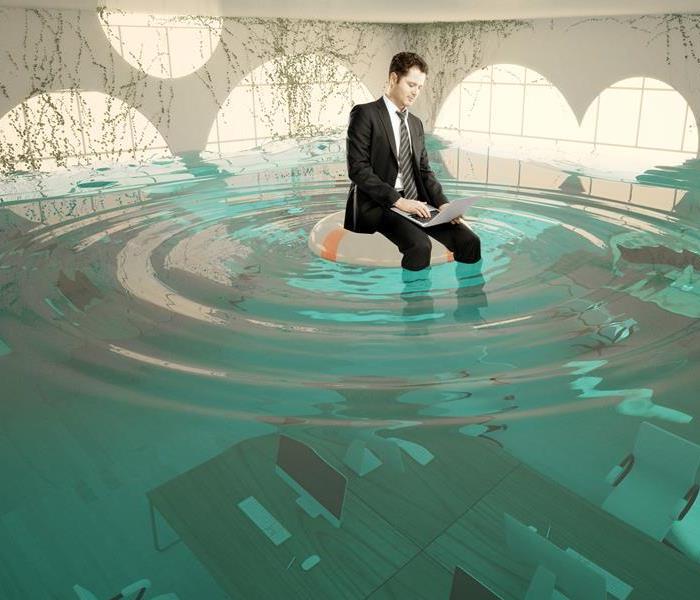What Materials in My Chicago Business Are More Prone to Water Damage?
7/21/2020 (Permalink)
Hygroscopic Materials Are Especially Prone to Water Absorption and SERVPRO Has Experts in Place to Restore Those Items
Understanding which type of material absorbs water at a higher rate is key to understanding how we cleanup water intrusion in your Chicago business.
What are hygroscopic materials?
Hygroscopic materials are items that readily absorb water. They also hold onto water vapor in the air. How water vapor flows through a material is known as permeance. Hygroscopic items have a high permeance factor. But the good news is – the easier it absorbs water, the faster it dries. This is good news for your Chicago business requiring water extraction after a water loss. Examples of these items include:
- Carpet
- Carpet Padding
- Upholstery
- Unfaced Insulation
- Gypsum Wall Board
- Particle Board
Immediate Water Mitigation
Because these types of materials absorb water so readily, they are prone to primary and secondary damages. SERVPRO is committed to limiting primary damage and avoiding secondary damage, but immediate mitigation is a must. Hygroscopic material such as carpeting can undergo delamination if the water is not extracted promptly. This is an example of primary damage. Ceiling tiles and wallpaper can moisten, crumble, soften, and fall once they absorb water and are left untreated. This represents secondary damage, which is what we strive to prevent.
Avoiding Secondary Damages
Water extraction from both the business as a whole and the air is crucial. Hygroscopic materials are more prone to secondary damages, so crews need to move fast. You need the proper ratio of air movers to dehumidifiers to get the job done correctly. Our team has the expertise to know just what equipment to use for your situation.
SERVPRO has expert crews that understand water extraction and how to preserve hygroscopic materials. Contact SERVPRO of West Loop / Bucktown /Greektown at (773) 434-9100 for service that will leave your business, “Like it never even happened.”






 24/7 Emergency Service
24/7 Emergency Service